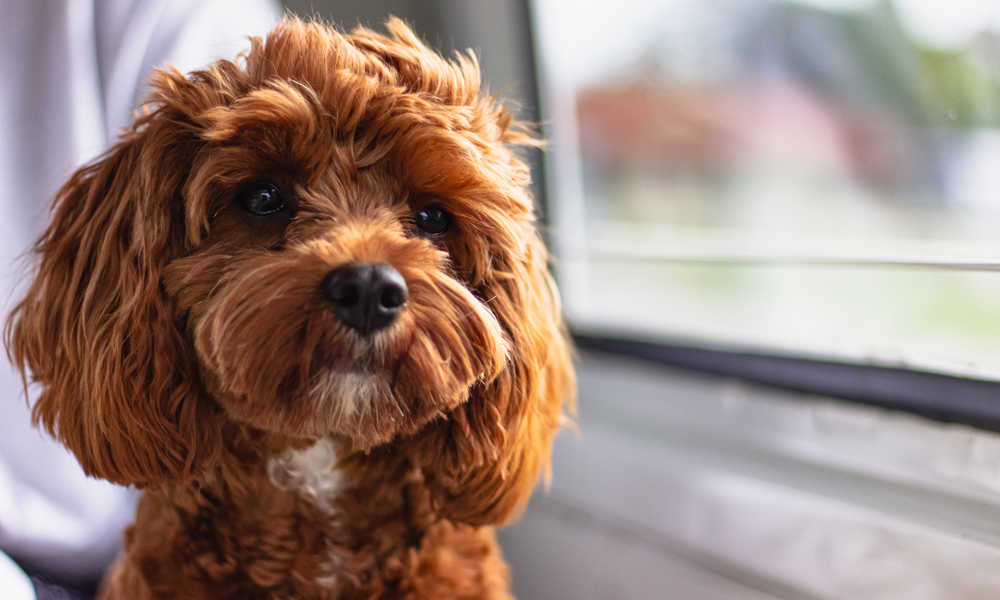Many canine parents would call themselves equal opportunity dog lovers. But the big, playful personalities accompanied by the puppy-like faces of smaller dogs are awfully hard to resist. If you’re wondering if a smaller pet is best for your family, we’ve got you covered.
What is considered a small dog?
Any dog that weighs in at 20 pounds or less is considered a small dog by most vets and groomers. Even then, you’ll find a large range of shapes and sizes. On the smallest end of the scale, the tiniest and daintiest of these dogs weigh as little as two pounds.
What’s considered a toy or miniature breed?
When you hear the word “toy” or miniature attached to an established dog breed, it means selective breeding was used to get a smaller version. Usually, these come from dogs originally bred for hunting or working. But someone at some point might have fallen hard for the cute, puppy-like looks of a toy or miniature dog, as millions of pet parents still do today! Perhaps they also liked the idea of having these dogs in the world as companions that could curl up in your lap.
Size and weight of these dogs have plenty of variation, but are still well within the small dog umbrella:
- Miniature breeds: 3 to 12 pounds
- Toy breeds: 5 to 12 pounds
What is considered a teacup dog breed?
Teacup breeds are the smallest dogs in the canine kingdom. Weighing in at 2-5 pounds, these dogs are specially bred to be extra teensy. Some are small enough to tuck into a large pocket or a handbag. Plus they look and act like miniature versions of your favorite toy breeds — like pugs, Yorkies and Pomeranians. Through selective breeding, these dogs reach this extra-small size. However, teacup dogs are not recognized by the AKC, or any other group that classifies dogs, as an “official” breed.
Where do small dogs come from?
Whether your small dog comes with official papers or an equally adored rescue mixed heritage, all small dogs do share a thread of common ancestry: Toy breeds are descendants of the Middle Eastern gray wolf. According to a genetic study published in 2010, some 12,000 year ago, small-sized dogs originated in the Middle East. These small dogs were the result of a genetic mutation of domesticated dogs with a lineage to these wolves.
Animal domestication often results in smaller size, not only for dogs, but for goats, cattle and horses. Because smaller dogs are helpful in certain situations — like flushing out prey, hunting rats and other small pests — small dogs found their place among humans.
It’s funny to think about the wolf connection to small dogs, because you may see zero evidence of the wolf in your yapping, energetic fluffball. But look closely at how their bodies communicate, and you might see some of those wolf traits come into focus!
[Read more in Dog body language: What’s your canine trying to tell you?]
Why are small dogs the best?
Despite their small size, smaller dogs come bounding into your heart to occupy a very large piece of it. Some pet parents do have a strong preference for the perky, playful personalities of smaller pups. For others, lifestyle is a big factor in choosing a small dog. If you find yourself agreeing with the following, a smaller dog might be the right one for you.
[When it comes to living happily with a small dog, training is not something to overlook. For insights, check out the podcast Raising Your Paws and tune into the third segment of Episode 89.]
Small dogs are easy to scoop up and carry
When your dog is annoying the cat or barking his head off at the neighbor kids, having a smaller pet is a huge advantage to deescalating the situation. All you have to do is scoop him up and remove him. Some pet parents feel better knowing they can be in physical control of their pet.
Small dogs fit great in small spaces
Small dogs can make great roommates in an apartment or a condo, plus they’re easier to exercise indoors on a rainy day. If you’re a renter, dog-friendly landlords are more apt to take in small furry tenants, giving you more options to find a place.
When traveling, dog carriers are much easier to handle on your own than larger crates.
Best of all, a small dog can easily cozy up with you on your favorite chair. If you prefer to share your bed with your furry friend, a small dog leaves you with more legroom to sprawl out.
Small dogs are less of … everything
When everything about them is small, so are the effects of living with them. Small size dogs need smaller portions of dinner, so they go through fewer bags of food. Smaller sized dogs also have fewer square inches of body surface so they leave less hair on the floor, sofa and furniture. Finally, smaller dogs means smaller messes in the backyard to clean up.
Smaller breeds live longer lives
In general, smaller breeds tend to stay with us a few years longer than larger breeds. Scientists believe larger dogs age more quickly than smaller dogs, which results in earlier death. The reason for the faster aging is still a mystery, but one that scientific observation can hopefully one day unravel.
Some of the most popular small dog breeds
Looking for the perfect pup or blend to take home? Fluffy dogs, hypoallergenic dogs, calm dogs — they’re all here. Start your search with this list.
Cavalier King Charles Spaniel
This companion animal can adapt to your energy level. Planning a long drive? Spending a day at the lake? He’s up for it. But he’ll be equally content snoozing by your side as you binge watch your favorite series, which is why the Cavalier King Charles Spaniel is a favorite on the list of calm small dog breeds.
Boston Terrier
This loveable clown of a dog is the perfect addition for just about any family lifestyle. Whether you’re in the city or in the country, active or a couch potato, the Boston Terrier just wants to trot by your side and love you. With their short coats, these hypoallergenic small dogs need minimal grooming and maintenance.
[Discover more in Are Boston Terriers good dogs? A look at their personalities, history and care]
Bichon Frise
If your heart leaps for cute, fluffy white dogs, here’s one for consideration. Literally, the translation for Bichon Frise is “fluffy white dog.” Not only do they slay hearts with their adorable faces, they’re also a go-to if people in your household have pet allergies. (Other fluffy white dogs to consider are Maltese and Havanese.)
Shih Tzu
The Shih Tzu has one job, and that is to be an agreeable companion that wants nothing more than to hang with his peeps. They’re lively, friendly but also gentle. With training and consistent guidance, they won’t annoy close neighbors with nuisance barking.
French Bulldog
The French Bulldog wins popularity contests all around because they’re affectionate, playful housemates that are well adapted to an urban lifestyle. Despite their name, they were bred in England as a companion version of the bulldog.
Cavoodle
One of the rising stars among dog lovers is this cross between the Poodle and the Cavalier King Charles Spaniel. These fluffy, amicable companions are great family pets, but they’re also impeccably mannered in situations like patio dining at your favorite eatery.
[Read more about this loveable ball of fluff in A guide to Cavoodles: Friendly family pets]
Happy gut, happy mutt!
If a dog is smaller they eat a lot less so nutrient-dense nutrition is of the utmost importance! If you have a small breed, consider one of the many small bite formulas from family-owned NutriSource.
Not only does your small dog get more nutrition in just the right size bite, NutriSource formulates all foods with our innovative Good 4 Life® system. The probiotics and prebiotics aid in mineral absorption and support immunity by the production of natural antibiotics and antifungals in the gut for optimal health.
Find NutriSource at your local, independent pet retailer.


